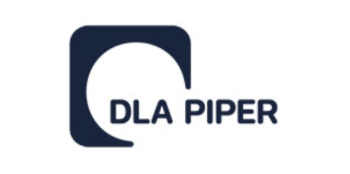By a letter of 17 March 2020, IVASS (the Italian insurance regulator) and the Bank of Italy once again addressed the issue of policies connected to loan and financing contracts, recommending the adoption of verification procedures by the internal control functions of insurance undertakings and financial institutions in order to identify and remedy the following possible critical issues.
Qualification of policy as obligatory or optional and illustration of its minimum contents
The management and supervisory bodies of financial intermediaries must ensure that appropriate evidence is provided (eg, through websites) that it is compulsory or optional to purchase a policy in connection with a loan or financing agreement.
The correct qualification of any service or ancillary product as compulsory or optional must be examined in the context of the periodic review of the adequacy and effectiveness of internal procedures by the internal control functions.
The minimum contents of the policy must be clearly set out, so that customers can find equivalent products on the market.
IVASS and the Bank of Italy have highlighted that:
- with the so-called 'welcome letter', issued immediately after the stipulation of the policy, operators must:
- summarise to customers the characteristics of the insurance coverage taken out; and
- recall the right of withdrawal; and
- the cost of the compulsory policies must be included in the total cost of the credit for the purposes of calculating the annual percentage rate.
In the case of policies that have no functional connection with the requested financing (so-called 'decorrelated' policies), the refusal to repay the premium not enjoyed in the event of early repayment of the loan is deemed to be incorrect.
IVASS and the Bank of Italy recalled that, in the case of decorrelated policies, the antitrust authority (which recently penalised various banks for alleged mis-selling) did not impose penalties in the presence of the following:
- the provision of a period of at least seven days between the granting of the loan and the stipulation of the policy; and
- the commitment not to finance the insurance premium.
Control of distribution networks
Operators must carry out periodic checks on the matching indices of the products offered by type of distribution channel and individual distributor.
In order not to incentivise the placement of matched products to a greater extent than separate sales, it will be necessary to verify the adequacy of the placement targets for sales personnel and distribution networks, as well as the related remuneration levels.
The internal control functions of intermediaries and insurers should:
- take additional steps to verify the level of customer satisfaction;
- verify the conduct of the network; and
- prevent the existence of any internal pressure to place certain products.
Conflicts of interest and cost levels
Audits by the internal audit function should take place at least every two years and corrective actions should be taken, which may include:
- training campaigns for sales staff;
- information campaigns for customers;
- the revision of contractual schemes;
- the revision of distribution agreements; and
- the revision of the sales network remuneration systems.
This is in order to avoid potential conflicts of interest, as in the case of commercial agreements between the promoter of the policy and the lender – namely, imbalances between the cost of the placement and distribution of insurance policies and the remuneration received.
Early termination of financing and consequences for connected policies
In the event that a customer withdraws from a financing contract, the financial intermediary must take action for the early termination of the insurance policy and for the return to the customer of the related premiums not enjoyed in accordance with the provisions of Article 39 of IVASS Regulation 41/2018 in the matter of (re)insurance distribution. The insured has the right to request that the insurance coverage be maintained.
Key principles to be complied with in distribution of connected insurance products
In the distribution of insurance products, IVASS and the Bank of Italy have stressed the need to respect the following key principles:
- act with fairness and transparency;
- avoid conflicts of interest;
- acquire any information useful to identify the actual needs of the policyholder; and
- distribute the product to the customer for which it was designed and guarantee the value for money of the product itself.
Checks by internal control function
Banks, financial intermediaries and insurers will have to carry out a review of their offering policies and the way other contracts are placed together with a loan. To this end, appropriate information exchange processes must be structured between banks and insurers to ensure the creation of appropriate products in relation to customers' needs.
Audits are to be conducted by the compliance and internal audit functions, which are to verify periodically, by means of remote and on-site controls:
- compliance with applicable provisions;
- the suitability of internal processes and regulations; and
- the exposure to operational, legal and reputational risks arising from litigation with customers or from reprimands by the competent authorities.
If deficiencies are found, necessary remedies must be taken, including the adoption of measures in the event of legal and reputational risks.
In view of the COVID-19 health emergency, the results of the audits of the control functions must be examined in a joint meeting of the management and control bodies by 30 September 2020.
In the event that significant deficiencies are found in the offer and placement of insurance products combined with financing, the control functions must send the Bank of Italy and IVASS a report on the checks carried out with the plan of remedial measures and the relative implementation schedule.





